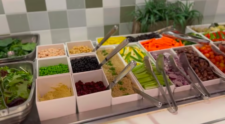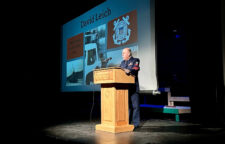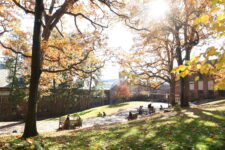Community service is a core experience of a Fieldston Upper education, teaching students about the benefits of connecting to the greater world through acts of service. While community service learning begins as an academic requirement, a comprehensive focus on service over four years allows Fieldston Upper students to discover new passions and interests while helping others.
“There is a community service learning requirement that every student needs to complete for graduation, just like PE, math, or science,” says Director of Public Partnership Shelley Topping-Omodunbi. “While students are off doing independent service work and some students are on campus doing community service learning classes, some of those classes actually take their learning and [incorporate] it into the community by creating drives around the certain issue or in support of a particular organization.”
Fieldston Upper students begin 9th Grade by enrolling in an ethics course or an introductory class to community service. This coursework prepares students for the more intricate community service learning they experience in 10th Grade and beyond, especially as potential Community Service Advisory Board (CSAB), Community Service Learning Advocacy (CSLAD), and Social Issues and Service Learning (SISL) members. Students in 10th and 11th Grade not enrolled in the above-mentioned courses work independently with an organization for at least three months of service work. They are required to research and create a proposal about their chosen organization before being approved to move forward with the partnership. Stepping away from the classroom for this experience provides what Topping-Omodunbi calls a “parallel learning process.”
“Students connect with organizations in various social justice issues, from food insecurity, housing insecurity, [and] reproductive health access,” Topping-Omodunbi says. “It also gives them an opportunity to make connections to what they’ve learned not just in ethics, but in English, history, maybe even science.”
Following COVID-19 limitations on in-person work with organizations, the 2022–2023 academic year was the first since the pandemic to fully combine service efforts in both the classroom and the outside community.
“Some students who are doing independent work will take the interest that they built at an organization and create a drive or a fundraiser or build it into an assembly program,” says Topping-Omodunbi. “There are ways to build it into the School community so that students are taking their social justice learning, their community service learning, and sharing it with the community.”
This year, the newest CSAB class soon had the chance to apply this growing knowledge to a large-scale effort. In February, the devastating earthquake impacting Turkey and Syria inspired a mass outreach encouraging people to contribute essential items like tents, flashlights, hand warmers, and more to an all school drive. 10th Grade CSAB-IT students separately hosted a candygram sale to raise money for earthquake relief efforts. By the end of the event, the class had sold 180 candygrams and raised $900 to donate. Along with Fieldston Middle students, they also helped set up collection bins throughout the School, ultimately donating 25 boxes to support earthquake survivors.
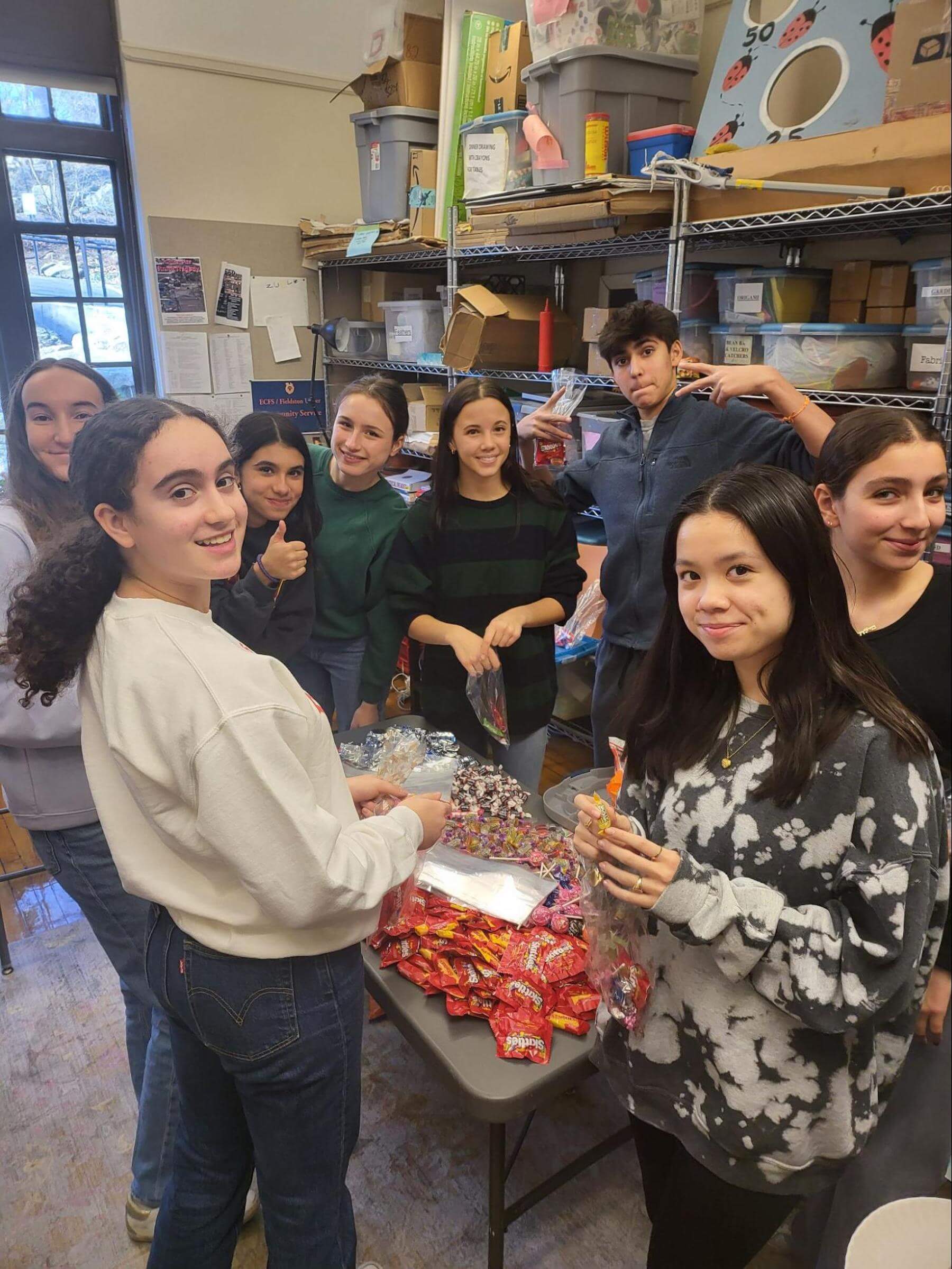
Planning for such a large project mirrored the process that 10th Graders would grow accustomed to during each community drive, including one where they partnered with Ronald McDonald House to conclude the year’s work. Having participated in her first year of CSAB, Shayna S. ’25 says, “In our first ever drive and service project, the whole class learned the many roles and steps that go into planning a drive. We did outreach to the organization and the School and communicated with all of the adults involved. Coordination was key as we each worked on the different aspects: communicating with the organization, making the School aware and getting them to support and donate, putting out bins and posters, and functioning together as a team for the first time.”
10th Graders are now working in a global climate much different from the Class of 2023’s experience. Seniors first began their CSAB studies in 2020 amidst a world learning how to cope with pandemic regulations and relying heavily on virtual meetings. “As part of the CSAB who started their first year of this class online, it was a different yet illuminating experience for me since it showed the first signs of how well our class would work together for the next three years,” Ada G. ’23 says.
The last few years of restrictions understandably could have frustrated students, but for this CSAB class, the reminder that every effort counts came during their senior year from Treeage, the environmental justice organization they partnered with for the last two years.
“This year, one of the projects we did with Treeage was to set up a roundtable talking about Local Law 97,” says Ada. “While it was a memorable experience, as we got to share what we learned from Treeage with the rest of our community, I think the best part may have been listening to the advice [Executive Director of Treeage] Shiv Soin gave us leading up to it. He said that for the rest of the community to be involved, they have to know they don’t have to be big activists or advocates to make a difference. That phrase stuck with me because I never thought about it like that. It’s reassuring to know that you don’t need some sort of background experience to be involved and make a difference in the community.”
Making a difference is a lesson even the youngest students at the School learn through outreach events, but it’s often not until they start Fieldston Upper community service work that students fully understand this value.
“When I was a student at Fieldston Lower, I remember collecting cans of food and supplies for people who were victims of natural disasters across the country,” Maya T. ’24 recalls. “It always felt good doing something nice for others, but I didn’t have a real active role in who the recipients of the drives were or how the items would even get to them. Once I became a 9th Grader, my ability to engage with community service increased significantly. In CSAB, we learned how as students, we can truly make a difference in our community. What began with sending emails to organizations while we were in class became something more experiential and hands-on. We were doing work that was having a direct impact on people’s lives.”
For her community service work this year, Maya has particularly focused on the Friendly Fridge program, which helps provide resources to a local community fridge. At a recent packing event, Fieldston students joined other students from the Hilltop Coalition in preparing 60 bags filled with sandwiches, water, apples, fruit bars, and chips.
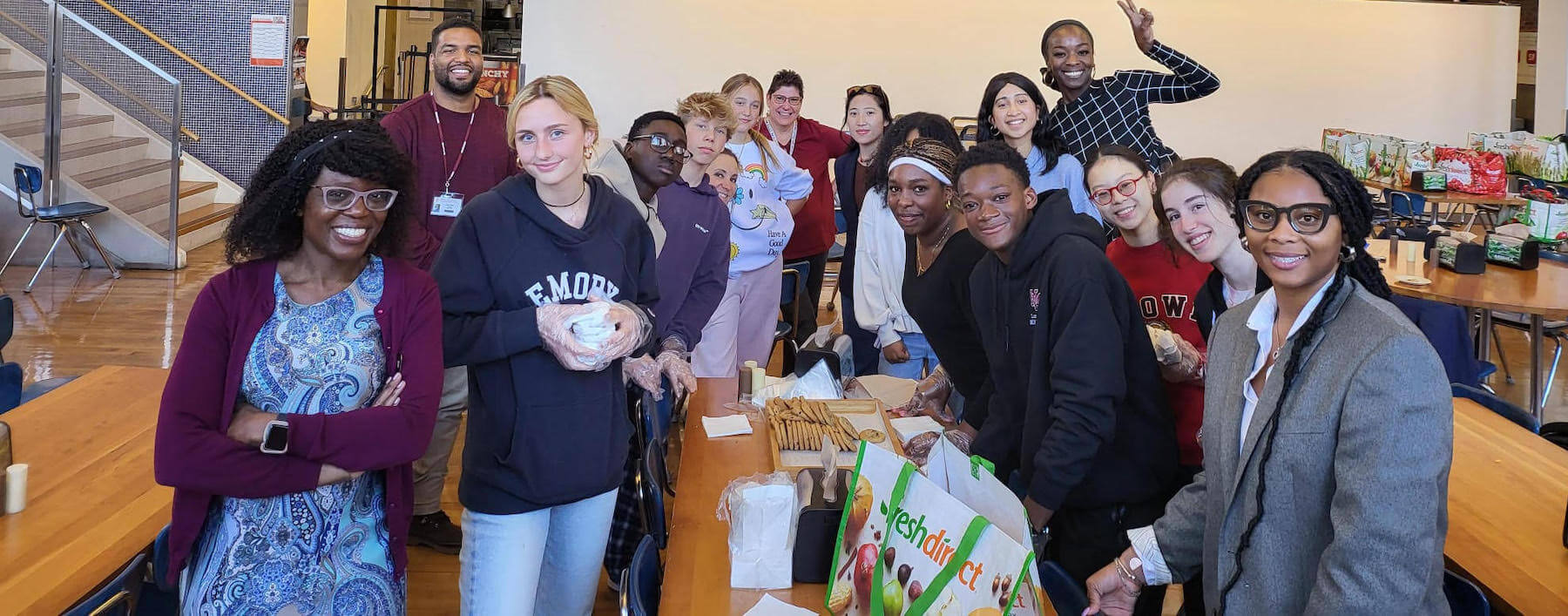
“When you go to a private school up on the hill in Riverdale, it is easy to forget that people just a few blocks down are experiencing food insecurity,” Maya says. “Things became even worse during COVID-19, and the concept of Friendly Fridges became a way to help. Members of the club, along with other students from Riverdale and Horace Mann, assemble sandwiches made out of leftover food donated by our food service. Then, we carry them down and fill the fridge that is located right by the last stop on the one train.”
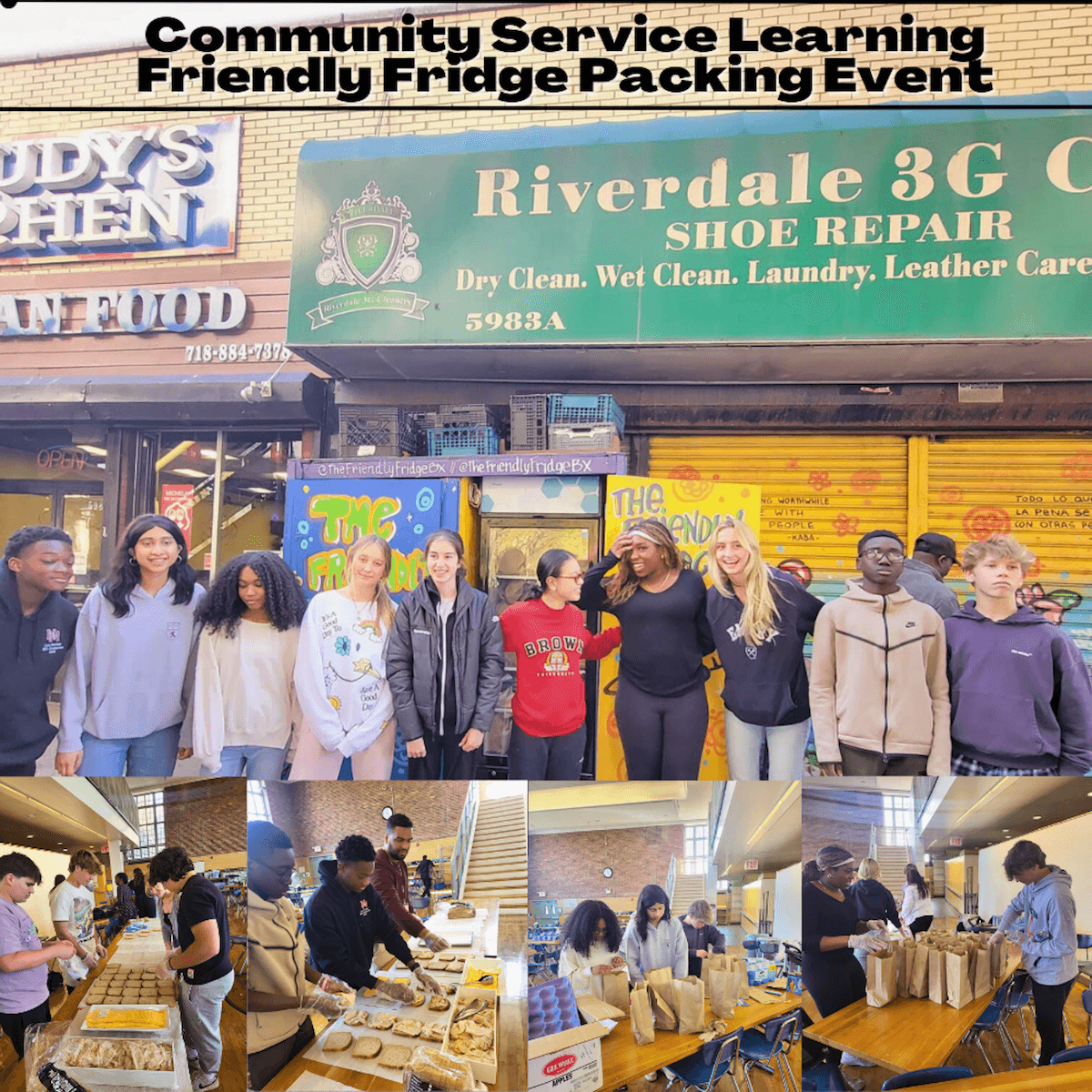
The CSAB program is closing the academic year with an emphasis on celebrating the rising 12th Graders. Current seniors produced a podcast to share more about their work with Treeage, but the platform soon featured the next class’s goals for CSAB.
“We interviewed the rising seniors about their plan and organization for next year,” says Ada. “We hope to continue the podcast as a yearly project so that the CSAB-II class gets to share their experiences with their organizations with the rest of the community. The interview is like a passing of the torch where we let the listeners know that the current seniors are now passing their roles onto the rising CSAB-II.”
By allowing students to embrace their creativity and personal interests, Fieldston Upper’s community service program gives them the confidence and independence to explore unique paths to community service projects. Additionally, they carry these new skills into other areas of their lives, especially as they near the end of their high school education.
“There are so many lessons I have learned through my work with CSAB and other service projects I have been involved with at Fieldston,” Maya shares. “It taught me how to be a creative problem solver and communicate effectively, and it helped me discover strengths I didn’t know I had.”
